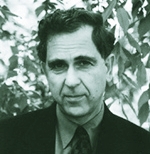
"Liberalism stands not only for the principle that we all have an equal
right to freedom but also for the hypothesis that this is a workable
ideal—indeed, that liberalism, properly understood, can produce the
power and wealth that make a free society more than a dream."
— From the
Introduction to Freedom's Power.
Liberalism in America has been under siege. Conservatives now treat it as an epithet, and some progressives spurn it as well. But, according to Paul Starr, liberalism is a sturdy public philosophy, deeply rooted in our traditions and capable of making America and the world freer and more secure.
"Life, liberty, and the pursuit of happiness" remains as good a concise definition of liberalism’s aims today as it was when Thomas Jefferson borrowed the language of John Locke for the Declaration of Independence. What distinguishes liberalism, however, is not just high aspirations but strikingly effective principles for the creation as well as the control of power. From its origins as constitutional liberalism in the seventeenth and eighteenth centuries, the liberal project has provided the basis of the most prosperous and powerful states in the world.
Modern democratic liberalism has carried forward the constitutional liberal tradition by favoring a more inclusive and egalitarian conception of liberty and opportunity. It has responded to threats to freedom and the public good from excessive concentrations of private power, while maintaining a dynamic market economy. And it has shown how government can respond to economic crisis and injustice yet keep arbitrary power in check by providing stronger guarantees of civil liberties and equal rights.
At a time when conservative policies are weakening America’s long-term fiscal, economic, and international strength as well as its liberties, the liberal project is more urgent than ever. Freedom's Power shows why liberalism works — and how it can work for America again.


